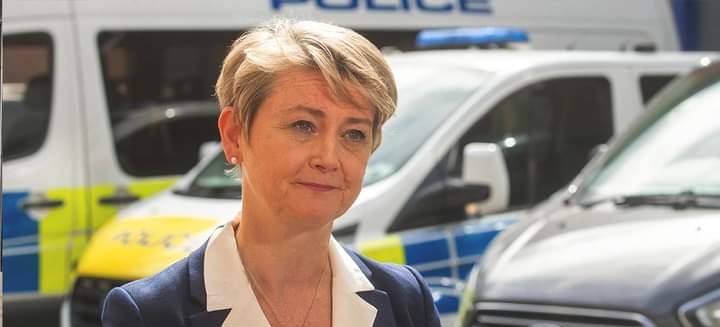By Adeyemi Adekunle
Britain’s newly appointed interior minister, Yvette Cooper, condemned the previous government’s controversial plan to deport irregular migrants to Rwanda, labeling it as the “most shocking waste of taxpayer money” she had ever witnessed. This statement marks a significant departure from the Conservative Party’s stance, following Labour’s sweeping victory in the recent elections.
Standing at the heart of the Home Office on a brisk Monday morning, Cooper detailed the financial ramifications of the scheme, which has drawn widespread criticism and legal challenges since its inception. According to Cooper, the UK spent an astounding £700 million ($900 million) on the relocation program, which she described as both inefficient and inhumane.
“Only four individuals were relocated to Rwanda, and even they went voluntarily,” Cooper announced, her voice tinged with frustration. “The Conservative government, under former Prime Minister Rishi Sunak, had envisioned spending over £10 billion on this flawed initiative.”
The financial breakdown provided by Cooper painted a grim picture: £290 million paid to Rwanda, expenses for chartering flights that never departed, costs associated with detaining and subsequently releasing hundreds of migrants, and salaries for over 1,000 civil servants working on the scheme. This extensive expenditure, she argued, highlighted the policy’s inefficiency and lack of foresight.
James Cleverly, the Conservative home affairs spokesman who had championed the plan as home secretary, swiftly responded by accusing Cooper of fabricating figures and displaying a lack of respect towards the Rwandan government. He maintained that the initiative aimed to deter the perilous journeys across the English Channel, a route that has seen a surge in migrant crossings.
Former Prime Minister Sunak had defended the plan, asserting that it would prevent tens of thousands of migrants from risking their lives in dangerous crossings from France to Britain’s southern coast. However, the program faced significant legal hurdles. In November, the UK Supreme Court deemed the deportation scheme illegal under international law, citing concerns over Rwanda’s safety for asylum seekers.
On his first full day in office, newly appointed Prime Minister Keir Starmer declared the scheme “dead and buried,” signaling a new direction in UK immigration policy. In response, Rwanda stated that it was not obligated to return any of the £240 million already received from Britain.
Labour’s new approach focuses on dismantling the criminal networks facilitating these dangerous journeys. Cooper pledged to establish a new border security command with enhanced counter-terrorism powers aimed at “smashing the gangs” of people smugglers.
she committed to accelerating the removal of failed asylum seekers, a measure intended to alleviate the backlog that has significantly increased accommodation costs.
The urgency of these reforms is underscored by recent statistics: nearly 16,000 migrants have been detected crossing the Channel in small boats this year alone, with around 1,500 arriving in just the past week—a record for 2024.
As the UK navigates this contentious issue, the Labour government’s policy reversal highlights a significant shift in addressing the complex challenges of immigration and asylum.
Cooper’s unequivocal condemnation of the Rwanda plan not only underscores the previous administration’s missteps but also sets the stage for a more humane and effective approach to managing the nation’s borders.




